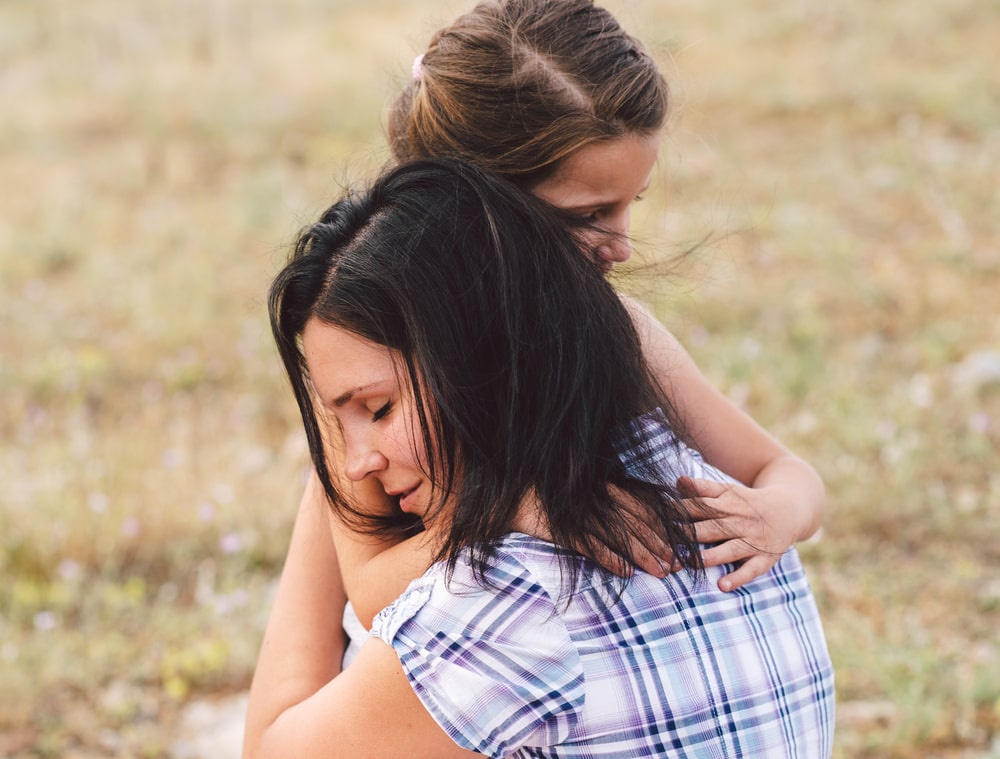No matter the type of loss, grief is hard. But in many ways, losing a loved one to suicide has its own added difficulties. You aren’t sure if you should talk about it. In fact, a family member may have asked you not to talk about it. You don’t know what to say when others ask about it or it comes up in conversation. In many ways, you just want the situation to go away, as if it never happened. But then, you feel bad because wishing it never happened is like wishing your loved one away. Why does it have to be so complicated? Does your grief even matter?
Yes, it absolutely does. Your grief matters. No matter the manner of death, take the time you need to mourn and remember your loved one.
Noted grief educator and counselor Dr. Alan Wolfelt attests to the reality of the deep pain that accompanies suicide loss. He says, “The death of someone from suicide feels unlike any other loss you may have experienced. The traumatic nature of the death may leave you feeling turned inside out and upside down. When suicide impacts our lives, we all need to grieve and to mourn. But our grief journeys are never exactly the same. Despite what you may hear, you will do the work of mourning in your own unique way.”

Sadly, the society we live in is not always as compassionate and understanding, particularly in relation to suicide. There are certain types of losses that go largely unacknowledged by society or are not given public expression. These losses are mourned in secret and are often not spoken of. We even have a name for this type of grief – disenfranchised grief. Dr. Ken Doka, who coined the phrase, describes it as, “Grief that persons experience when they incur a loss that is not or cannot be openly acknowledged, socially sanctioned or publicly mourned.”
To the many mothers, fathers, brothers, sisters, aunts, uncles, grandparents, cousins, friends, and colleagues who have lost someone to suicide, society may not acknowledge the gravity of your loss, but your loss is significant and worth grieving. Your grief is not something that should be swept under the rug or spoken of in whispers. It is real, and it is important.
So, as you move forward in your grief journey, as you mourn the loss of someone you loved, remember these things:
You have the right to grieve your loss
Despite what society may say, you have the right to grieve. You have lost someone special to you in a traumatic way. Any hopes and dreams you may have had for them are gone. You are left with a hollowness in your heart and a burning question – “why?” Even though you may never have the answers you seek, remember this – your loved one was one-of-a-kind, and you have a right to mourn them.

You have the right to talk about what you’ve been through
Particularly when we lose someone in a traumatic way, our feelings are all over the place. Maybe that’s you today. Find people you trust or others who have experienced a similar loss and talk with them. Share the weight of your grief. You don’t have to walk through this journey alone – you can invite others in. By talking about your loss, you help us all move toward being a society that acknowledges the depth of pain associated with suicide.
You have the right to feel whatever it is you feel
Grief expresses itself in many different ways. You may feel shock, denial, confusion, anger, guilt, sadness, or shame, to name a few. None of these are wrong. They are all normal. In fact, there’s no “right” way to grieve. For every one of us, the experience is different. So, embrace whatever it is that you feel – don’t push it away. We must go through the pain to move toward healing and reconciliation.

You have the right to be physically and emotionally weary
Grief is hard work. All of the emotions swirling inside, often not finding expression, sap your energy. You may find it hard to sleep, and as a result, feel tired and overwhelmed. In some cases, people may even experience physical symptoms like headaches, nausea, and weight loss or gain. Please know – this is a natural reaction. The body is in distress, the same as the mind and heart. Be kind to yourself as you grieve so that you have the energy needed to move toward healing.
You have the right to find freedom from negative emotions
Particularly with suicide loss, certain negative emotions rise to the surface. You may feel guilty that you didn’t see something sooner. Anger at your loved one may grip you. Shame and its terrible baggage may try to tell you that you shouldn’t talk about your loss. Or, blame may be turning your family against each other. All of these negative emotions swirl around, but you have the right to be free from them. If you do the work of grief, you can find peace.
You have the right to be unashamed of your loss
Despite what society or insensitive people around you may say, your loss is not shameful. You have every right to feel deep emotions. Your loved one fought a fierce internal battle and that struggle is real and should not be demeaned. Don’t feel like you need to hide. Openly express what your loved one’s loss has meant to you. If others don’t understand, that doesn’t mean you should try to conceal your grief. By no means do you need their permission to grieve.
You have the right to have your loss acknowledged
You do have the right to have your loss acknowledged, though you shouldn’t go around demanding that people do so. Forcing people into something is never truly successful. Instead, find comfort in the knowledge that your loss is worth acknowledgment, and because it is, awareness groups all over the country are working to bring it out of the shadows and into the light.

You have the right to experience grief bursts
In times of grief, you may experience grief bursts. When this happens, something innocuous or unexpected triggers a surge of grief. The trigger could be anything – a photo, an anniversary, a quote, a movie, an article of clothing. These bursts are a normal and natural part of the grieving process. Don’t be surprised or frightened when you experience them. Instead, find someone who knows your struggle to talk with when they occur.
You have the right to cherish your memories
Even though you lost your loved one prematurely and in a devastating way, you have the right to cherish their memory. You can do this in a variety of ways. Collect keepsakes – photos, your loved one’s favorite things, clothing, etc. – and create a memory box or scrapbook. Write your thoughts and feelings down in a grief journal or write letters to your loved one. Have a piece of jewelry made with your loved one’s initials or start a tradition that brings you comfort.

You have the right to move toward your grief and heal
Like any grief – recognized or not – you have the right to grieve and to heal. You may not feel like you have the right to move forward. You may feel a crushing sense of guilt or shame at the moment. That’s okay. That’s where you are right now, and it’s not bad. But learn to embrace the truth – you have the right to move toward your grief and heal. You can find new meaning.
Dr. Wolfelt tells us that we never get over a death; instead, we learn to reconcile ourselves to the loss. He states, “Your feelings of loss will not completely disappear, yet they will soften, and the intense pangs of grief will become less frequent. Hope for a continued life will emerge as you are able to make commitments to the future…. The unfolding of this journey is not intended to create a return to an ‘old normal’ but the discovery of a ‘new normal.’”
If you take nothing else away, know that your loss is significant, and it is heartbreaking. You have the right to mourn the loss of your loved one – gone much too soon. Grieve in whatever way you need so that you can find healing, peace, and reconciliation.





